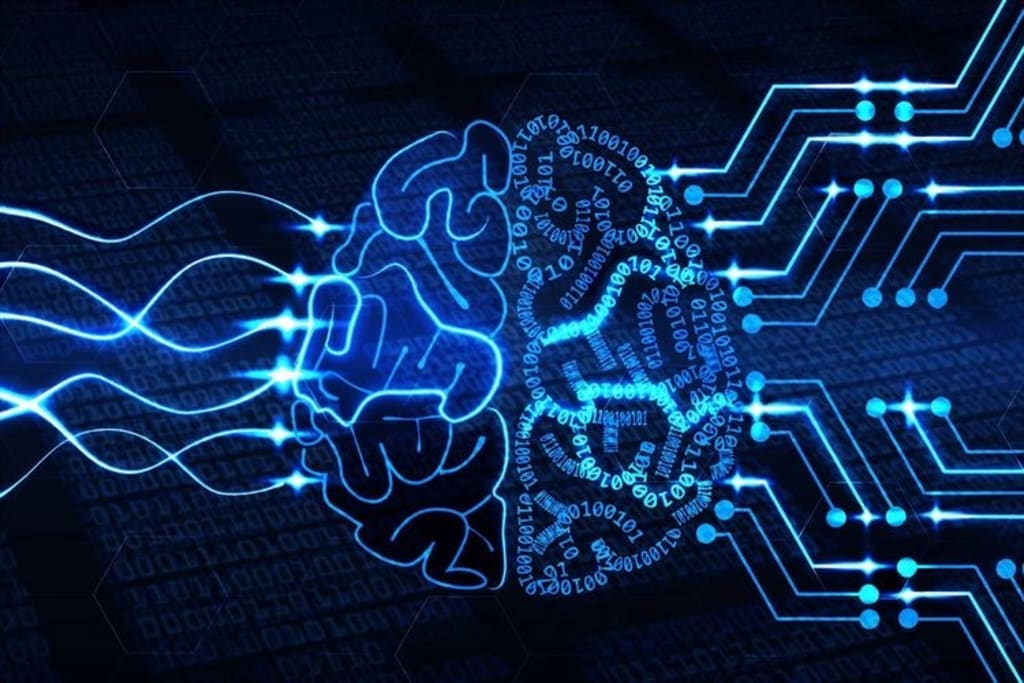AI vs HUMAN’s
Exploring the Impact and Coexistence

Introduction:
Artificial Intelligence (AI) has emerged as a transformative force, revolutionizing various aspects of human life. As AI continues to advance rapidly, questions and debates arise regarding its potential to replace or surpass human capabilities. This essay delves into the complex relationship between AI and humans, exploring their differences, interactions, and the implications for our society.
Body:
1. The Capabilities of AI:
AI showcases remarkable capabilities that enable it to perform complex tasks with speed and precision. Machine learning algorithms, neural networks, and natural language processing empower AI systems to analyze vast amounts of data, make predictions, automate processes, and even exhibit problem-solving skills. This ability to process and comprehend information at an unprecedented scale provides AI with a unique advantage over humans.
2. Human Intellect and Emotional Intelligence:
While AI excels in processing data and executing specific tasks, human intellect encompasses a broader scope. Our ability to reason, think abstractly, exercise creativity, and possess emotional intelligence enables us to tackle complex challenges and adapt to dynamic environments. Humans possess intuition, empathy, and the capacity for moral reasoning, qualities that remain distinct from AI and play a crucial role in various domains, including arts, ethics, and social interactions.
3. Collaborative Potential:
Rather than viewing AI as a threat, its integration with human capabilities can foster collaboration and complementarity. Humans possess domain expertise, contextual understanding, and ethical decision-making abilities that can enhance AI systems. By leveraging the strengths of both AI and humans, we can achieve synergistic outcomes. Collaborative efforts between AI and humans have shown promising results in healthcare, scientific research, and environmental conservation, among other fields.
4. Ethical Considerations:
As AI becomes increasingly sophisticated, ethical concerns come to the forefront. AI systems lack consciousness, morality, and accountability, raising questions about the consequences of delegating critical decisions solely to machines. The potential biases embedded in AI algorithms and the impact on privacy, security, and employment further necessitate ethical frameworks and regulations to ensure responsible AI development and deployment.
5. Societal Impact and Adaptation:
The widespread adoption of AI technologies has the potential to reshape society. Automation may disrupt certain industries and job markets, leading to significant socioeconomic challenges. However, the emergence of new professions and opportunities in AI development and ethical oversight can help mitigate the impact. Society must adapt to this technological shift by equipping individuals with necessary skills, fostering lifelong learning, and addressing potential inequalities.
6. Limitations and Challenges:
While AI continues to advance, it is important to acknowledge its limitations and the challenges it faces. AI systems heavily rely on data, and biases in training data can result in biased outcomes. Ensuring diversity and fairness in data collection and algorithm development is imperative. AI also struggles with common-sense reasoning and understanding context, which humans effortlessly navigate. Additionally, the risk of job displacement looms as automation progresses, requiring a comprehensive approach to reskilling and job creation.
7. The Human Experience and Creativity:
One aspect that sets humans apart from AI is our ability to experience emotions and engage in creative endeavors. The arts, literature, and music are products of the human imagination and reflect our unique perspectives and emotions. While AI can mimic artistic styles, it lacks the genuine emotional depth and personal experiences that humans bring to creative expressions. The human touch and the depth of meaning we find in art and culture contribute to our shared humanity.
In navigating the AI vs. human relationship, we must embrace AI's potential while safeguarding human values, ethics, and creativity. Striking a balance between AI's capabilities and the human experience will shape a future that embraces the best of both worlds, leading to innovation, progress, and the betterment of society as a whole.
Conclusion:
The relationship between AI and humans is not one of competition but rather a complex interplay. AI offers powerful tools that can augment human capabilities and enable us to tackle increasingly intricate problems. However, human intellect, emotional intelligence, and moral reasoning remain essential in areas where human connection and contextual understanding are crucial. By embracing collaboration, ensuring ethical development, and preparing for societal transformations, we can navigate the AI landscape and create a future that benefits both humans and AI systems.
About the Creator
Yasin Nazim
Daily reading content





Comments
There are no comments for this story
Be the first to respond and start the conversation.